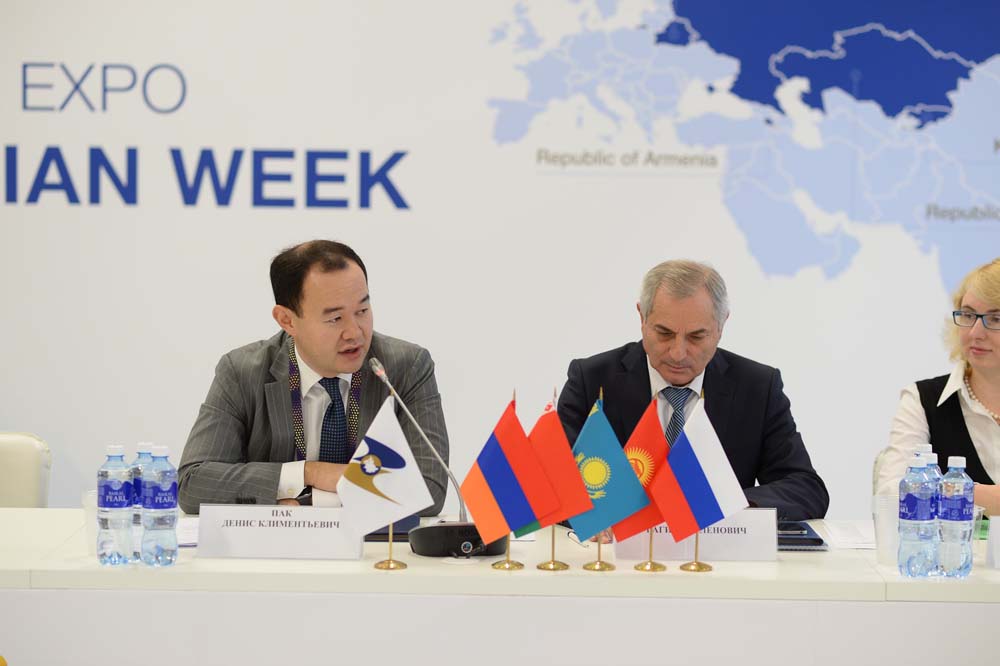On September 25-27, Bishkek will host the Eurasian Week - the largest international business forum in the Eurasian Economic Union (EAEU) space. Since 2016, the forum has been held annually in the capitals of the EAEU countries. The purpose of this forum is to present the world opportunities and potential of the EAEU countries in development of methodology and joint formation of the economy.
As the Minister of Trade of the Eurasian Economic Commission Veronika Nikishina explained: "Prime Ministers of the Eurasian Economic Union launched annual forum, agreeing that we will hold it in each of the countries of our union once a year. We conditionally divided the forum program into two independent but very closely related parts - business program and exhibition program. Each time, depending on the specialization of the host country, we come up with our own slogan, our motto, to which ties all events of the forum. We're trying to tie all events of our exhibition and business program. This year, in accordance with specialization of the host country - Kyrgyzstan - we will focus on finding mutually beneficial, permanent, long-term cooperation with small and medium-sized businesses mainly in the field of agriculture, food and other similar segments."
"The second topic, which will be a part of all our events, logically follows from the year during which we hold our forum. This year we celebrate five years of the creation of the Eurasian Economic Union; 25 years of the idea of Eurasian integration, which was voiced by Nursultan Nazarbayev in the Moscow State University; 10 years of the Customs Union, which became the basis for the EAEU. We will discuss all achievement that were made, and we invite all participants whom we invite to join active discussion. We learn a lot from each forum, analyze what we have to do and what mistakes we have to correct."

Veronika Nikishina also spoke about the main problems of virtual commerce that the Eurasian Economic Union member countries have to resolve: “Right now all states are starting to formulate their legislation in the field of regulation of virtual space. And we may find ourselves in a situation where these national regulatory laws won't correspond to each other, and thus there will be no single digital space. This will create objective problems for all participants and digital commerce. That's why this is the first issue we have to resolve. Objectively, it's the job of regulators - they have to understand whether it's necessary to regulate this space; and if it's necessary, then what should be done; should there be a single standard or everyone should work on this issue independently?"
Veronika Nikishina is sure that regulation should not be unreasonably strickt, otherwise it might become a barrier to digitalization: “That's why, within the framework of the Eurasian Commission, we developed a roadmap for moving towards creation of the Union’s regulation. We worked on it very carefully, discussing absolutely everything on a consensus basis with national governments. We raise questions of inadmissibility of discoordination of national laws so that it doesn't become the central issue that disrupts markets or regulatory systems."






